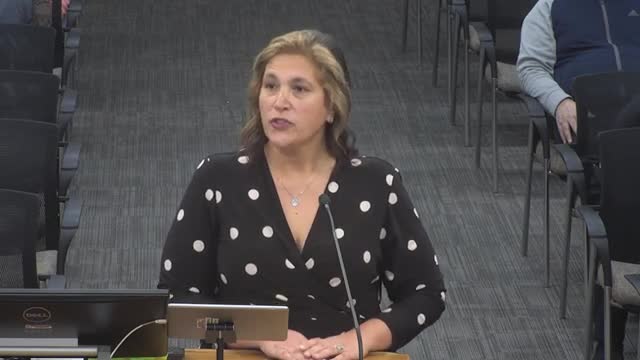Teachers Overwhelmed as New Program Violates Contracts
November 12, 2024 | Dearborn City School District, School Boards, Michigan
This article was created by AI summarizing key points discussed. AI makes mistakes, so for full details and context, please refer to the video of the full meeting. Please report any errors so we can fix them. Report an error »

As the school year progresses, concerns are mounting among teachers regarding the implementation of an acceleration program that is straining their resources and impacting student learning. During a recent government meeting, educators voiced their frustrations about the lack of adequate support and compensation, emphasizing that the burden of these changes should not fall solely on their shoulders.
Teachers reported feeling overwhelmed, with many stating that the current demands are unsustainable. The acceleration program has resulted in department heads losing significant instructional time—up to 61 hours over the school year—due to increased responsibilities without corresponding compensation. This has led to a situation where teachers are being asked to teach subjects they are not comfortable with, particularly in math, which is detrimental to students who require additional support.
The meeting highlighted that many teachers are struggling to manage dual subject responsibilities, with some teaching both math and English Language Arts. This inconsistency across different school buildings has created disparities in how subjects are taught, further complicating the educational experience for students. The lack of advisory periods, which previously provided essential release time for department heads, has exacerbated the issue, leaving teachers feeling unsupported.
Despite attempts to negotiate with the district for better conditions, teachers expressed dissatisfaction with the minimal compensation offered and reiterated their need for more time to effectively manage their workloads. The ongoing challenges have led to a sense of frustration among educators, who feel that their concerns are not being adequately addressed.
In response to these issues, district representatives acknowledged the need for continued dialogue and collaboration to find a mutually agreeable solution that prioritizes both teacher well-being and student success. However, teachers remain skeptical, citing ongoing contract violations and a lack of tangible improvements since the program's inception.
As the semester continues, the urgency for a resolution grows, with educators calling for immediate action to alleviate the pressures they face in the classroom. The situation underscores the critical need for systemic changes to support teachers and enhance the educational environment for students.
Teachers reported feeling overwhelmed, with many stating that the current demands are unsustainable. The acceleration program has resulted in department heads losing significant instructional time—up to 61 hours over the school year—due to increased responsibilities without corresponding compensation. This has led to a situation where teachers are being asked to teach subjects they are not comfortable with, particularly in math, which is detrimental to students who require additional support.
The meeting highlighted that many teachers are struggling to manage dual subject responsibilities, with some teaching both math and English Language Arts. This inconsistency across different school buildings has created disparities in how subjects are taught, further complicating the educational experience for students. The lack of advisory periods, which previously provided essential release time for department heads, has exacerbated the issue, leaving teachers feeling unsupported.
Despite attempts to negotiate with the district for better conditions, teachers expressed dissatisfaction with the minimal compensation offered and reiterated their need for more time to effectively manage their workloads. The ongoing challenges have led to a sense of frustration among educators, who feel that their concerns are not being adequately addressed.
In response to these issues, district representatives acknowledged the need for continued dialogue and collaboration to find a mutually agreeable solution that prioritizes both teacher well-being and student success. However, teachers remain skeptical, citing ongoing contract violations and a lack of tangible improvements since the program's inception.
As the semester continues, the urgency for a resolution grows, with educators calling for immediate action to alleviate the pressures they face in the classroom. The situation underscores the critical need for systemic changes to support teachers and enhance the educational environment for students.
Don't Miss a Word: See the Full Meeting!
Go beyond summaries. Unlock every video, transcript, and key insight with a Founder Membership.
✓
Get instant access to full meeting videos
✓
Search and clip any phrase from complete transcripts
✓
Receive AI-powered summaries & custom alerts
✓
Enjoy lifetime, unrestricted access to government data
30-day money-back guarantee

